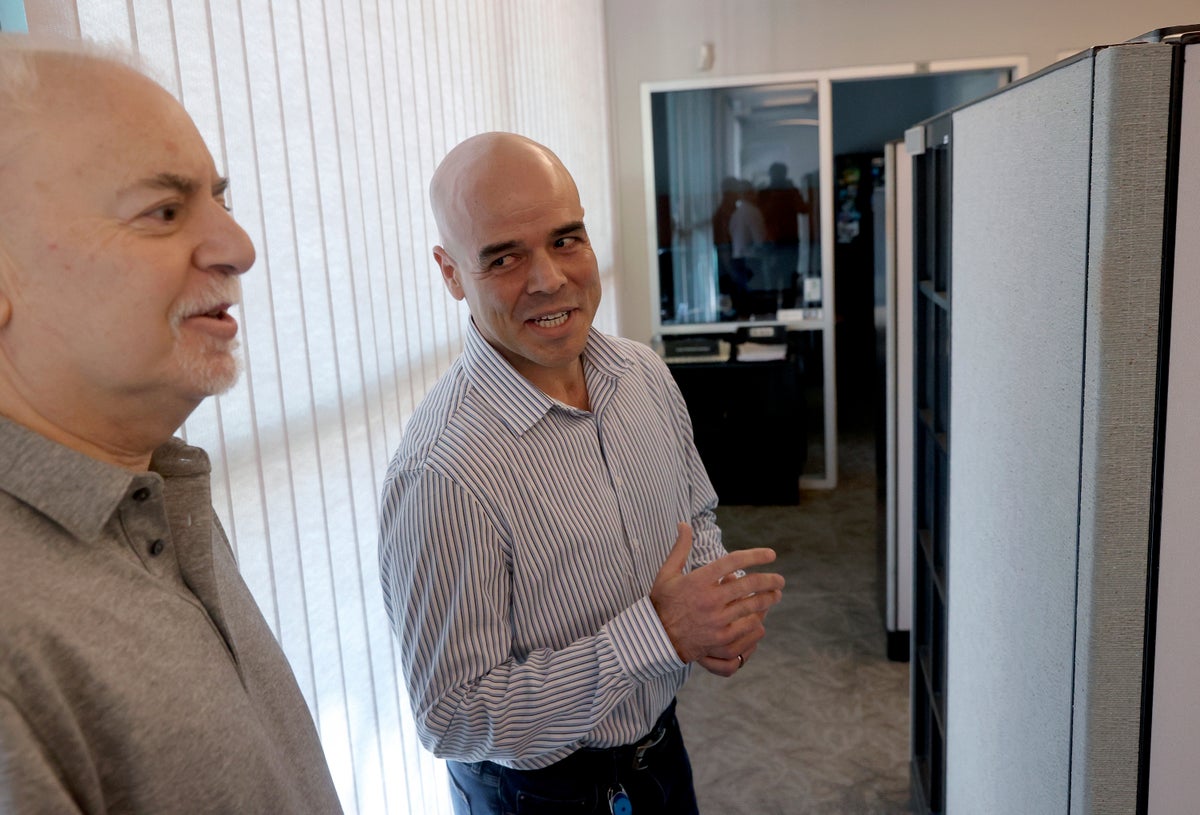
A Nevada judge is due Tuesday to hear a former Las Vegas-area elected official’s bid to dismiss his lawyer and represent himself on a murder charge in the killing of a veteran investigative journalist who wrote articles critical of him and his office.
Robert “Rob” Telles, a former Democratic county official, recently told The Associated Press in a jail interview that he intends to drop the attorney he hired in January and find another lawyer to get his case to trial quicker than the recently postponed November date.
He did not provide new evidence in his defense but said he wants to testify before a jury that hears the case of the killing of Las Vegas Review-Journal reporter Jeff German last September.
“I don’t want to draw this out,” Telles told the AP. “I’m looking to make sure I tell the truth and I get exonerated and that I can make it home and continue with my life.”
German was one of at least 67 news media workers killed worldwide in 2022, the highest number since 2018, according to a report in January by the New York-based Committee to Protect Journalists. Thirty-five of the known killings took place in just three countries: Ukraine, Mexico and Haiti. German was the only one in the U.S.
Last week, a television news reporter was killed and a photographer was wounded, allegedly shot by a gunman who returned to the scene of an earlier slaying near Orlando, Florida. The local sheriff characterized the shootings as random acts of violence.
Telles, a 46-year-old attorney and married father of three, won’t face the death penalty in Las Vegas but could face decades in state prison if he’s convicted of open murder. He remains jailed without bail.
His term as Clark County public administrator was cut short following his arrest less than a week after German’s death. The office handles dead people’s assets.
Telles has granted several jailhouse interviews with television reporters but has denied requests from the Review-Journal. He refused to tell AP during during a nearly 40-minute interview what he was doing the day police and prosecutors say German was attacked and killed in a side yard of German’s house.
“I may actually take the stand,” Telles told the AP on Feb. 14. “And so, because I’m going to do that, I think that’s something that will come out as far as what I was doing. But right now, I couldn’t answer that question.”
Police and prosecutors say they have strong evidence that Telles killed German, including Telles’ DNA found beneath German’s fingernails.
Neighborhood video shows a man wearing an orange work shirt and extra-broad straw hat walking near German’s home and entering German’s yard. Police said they recovered cut-up pieces of a straw hat and walking shoes at Telles’ home the day he was arrested.
Video images also showed a red Chevrolet Yukon Denali driving in German’s neighborhood. Telles acknowledged he owns a red Yukon Denali but denied the vehicle seen near German’s home was his.
He insisted evidence that police and prosecutors say was collected at his home and on German was “planted.”
“When it was, I cannot say,“he said. “But I did not kill Mr. German.”
Telles lost the Democratic party primary in June, weeks after German wrote about “turmoil and internal dissension” in the office Telles headed.
Telles’ outgoing lawyer, Damian Sheets, is the third private attorney Telles hired since his arrest.
Sheets has said he is obligated to honor his client’s wish and ask Clark County District Court Judge Michelle Leavitt to let him withdraw from the case. In a court filing, Sheets cited “a breakdown in communication” between himself and Telles.
In addition to delays due to attorney changes, steps toward trial are on hold pending a ruling by the state Supreme Court on an appeal by the Las Vegas Metropolitan Police Department of a judge’s order blocking homicide detectives from accessing digital records on computers and a cellphone seized from German’s home.
Police say they need to review the material for possible evidence to complete the investigation in the case against Telles.
Telles also is entitled under court rules of evidence to know if German had information that could clear Telles of the charge against him.
The Review-Journal argues that reviewing German’s files could improperly expose confidential information about stories German was working on, violating First Amendment protections and Nevada state law shielding reporters from revealing contacts and sources.







